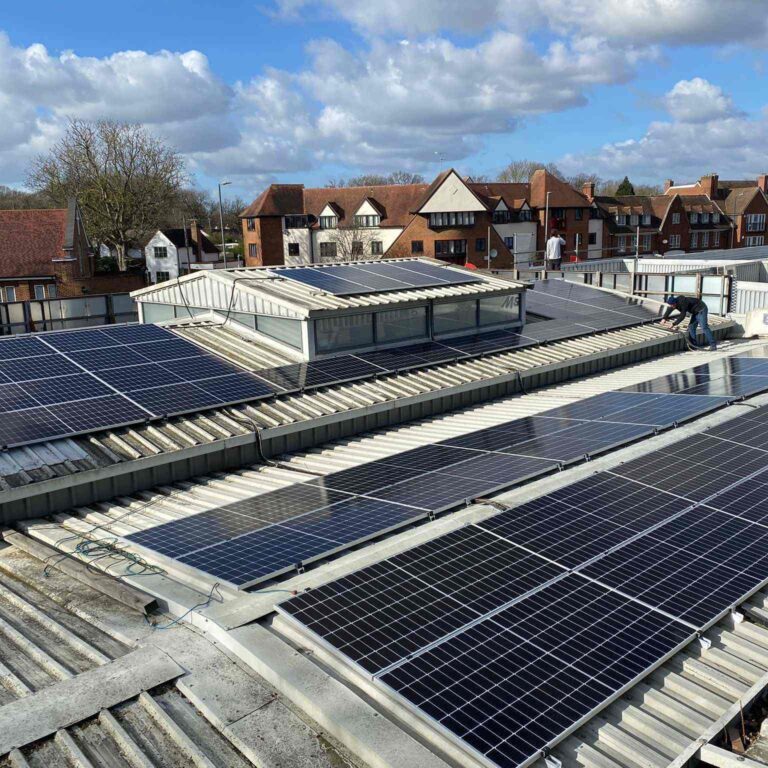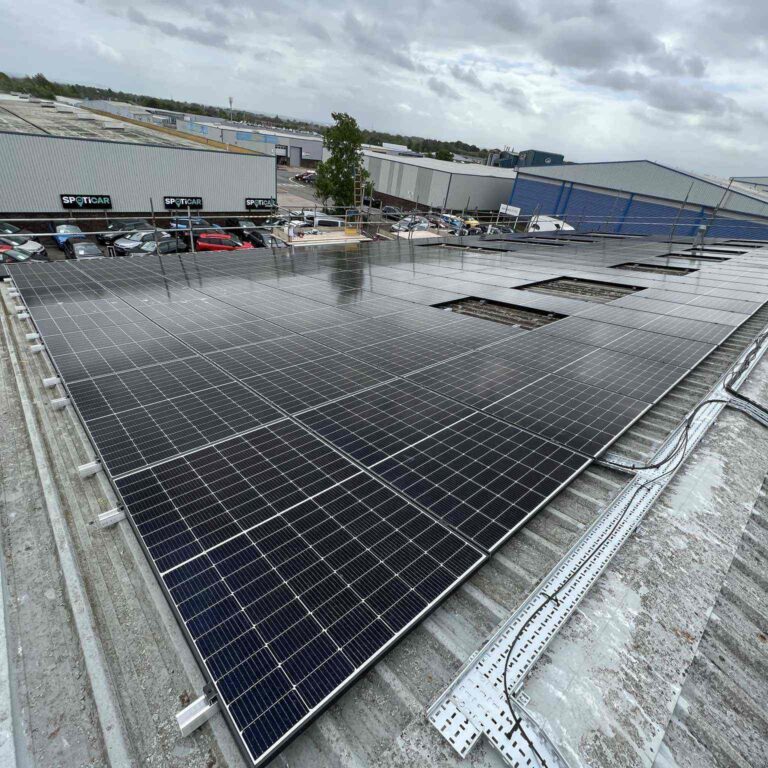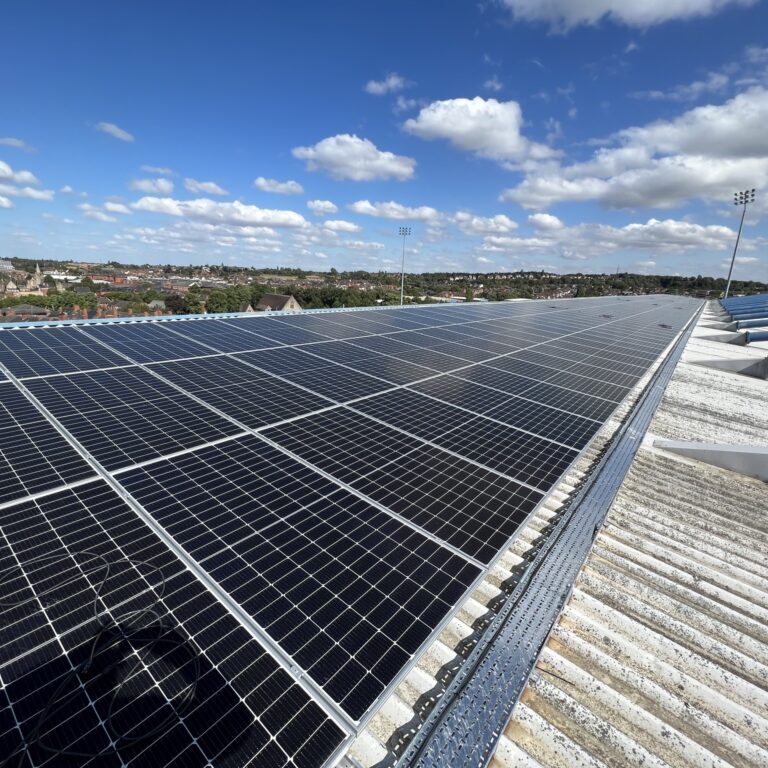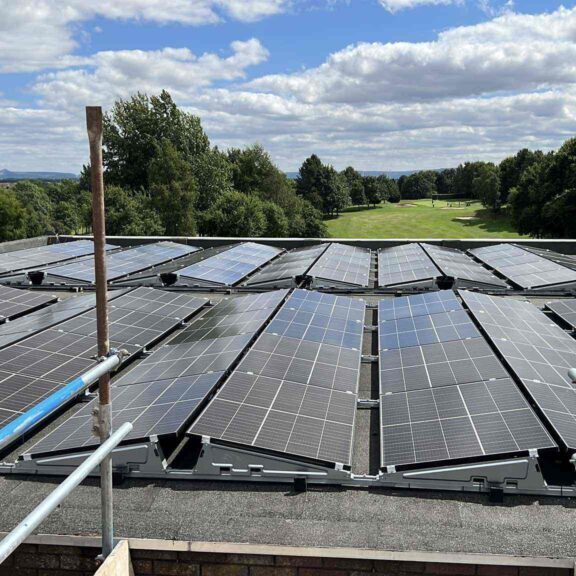Switching to solar energy is one of the smartest decisions a business can make, offering long-term cost savings, sustainability benefits, and energy independence. However, the upfront costs associated with solar installations can be a significant barrier for many companies. This is where understanding the options for financing commercial solar installations becomes crucial. In this complete guide to financing commercial solar installations, we will explore the various financing methods available, helping you make an informed decision that aligns with your business goals.
Why Financing Commercial Solar Installations is Important
Before diving into the specifics, it’s essential to understand why financing commercial solar installations is important. Solar installations typically require a substantial initial investment, which can be daunting for businesses, especially small and medium-sized enterprises (SMEs). Financing options make it possible to spread these costs over time, allowing businesses to reap the benefits of solar energy without a significant upfront expenditure.
By exploring the complete guide to financing commercial solar installations, you can identify the best financial strategy for your company, ensuring that your transition to solar energy is both affordable and financially beneficial in the long run.
1. Cash Purchase
One of the most straightforward options for financing commercial solar installations is a cash purchase. In this scenario, your business pays the full cost of the solar installation upfront. While this method requires the most substantial initial outlay, it also offers the highest potential return on investment (ROI).
By purchasing the solar system outright, your business can take full advantage of federal tax incentives, state rebates, and accelerated depreciation (such as the Modified Accelerated Cost Recovery System, or MACRS), which can significantly reduce the overall cost. Additionally, with no ongoing financing payments, your business will start saving on energy costs immediately, making this option the most profitable over the system’s lifespan.
2. Solar Loans
For businesses that cannot afford the full upfront cost, solar loans are a popular alternative. A solar loan allows your company to finance the installation with borrowed funds, which are repaid over time with interest. Solar loans can be secured through various sources, including traditional banks, credit unions, or specialized solar financing companies.
The advantage of using a solar loan is that your business can still own the solar system, benefiting from tax incentives and rebates. Additionally, monthly loan payments are often lower than your previous energy bills, meaning your business can start saving money immediately. By exploring this complete guide to financing commercial solar installations, you’ll see how solar loans provide a balanced approach, combining ownership benefits with manageable monthly payments.
3. Power Purchase Agreements (PPAs)
A Power Purchase Agreement (PPA) is another financing option that is particularly appealing for businesses looking to avoid any upfront costs. With a PPA, a third-party developer installs, owns, and maintains the solar system on your property, and your business agrees to purchase the electricity generated at a predetermined rate, typically lower than the local utility rate.
The key benefit of a PPA is the ability to access solar energy without any capital investment. Since the third-party developer retains ownership of the system, they also handle all maintenance and operational responsibilities, making this a hassle-free option for businesses. However, because your business does not own the system, it will not be eligible for tax incentives or rebates.
PPAs are ideal for businesses with limited capital or those that prefer to outsource the management of their solar system, allowing them to focus on their core operations.
4. Solar Leases
Similar to a PPA, a solar lease allows your business to benefit from solar energy without the upfront costs of installation. Under a solar lease, your business agrees to lease the solar equipment from a third-party provider for a fixed monthly fee. This fee is often lower than your current electricity bill, providing immediate savings.
One of the main differences between a solar lease and a PPA is how the payment structure works. With a lease, payments are fixed, providing more predictable costs over time, whereas PPAs usually have a variable payment structure based on the amount of electricity generated.
Solar leases are advantageous for businesses that want to switch to solar energy with minimal financial risk while still achieving energy savings. However, like PPAs, solar leases do not allow your business to take advantage of tax incentives or ownership benefits.
5. Commercial Property Assessed Clean Energy (C-PACE) Financing
C-PACE financing is an innovative method for financing commercial solar installations, designed to encourage energy efficiency and renewable energy projects. C-PACE allows businesses to finance solar installations through a property tax assessment, which is repaid over time through an additional charge on their property tax bill.
The unique aspect of C-PACE financing is that the loan is tied to the property, not the business. This means that if the property is sold, the remaining balance of the loan is transferred to the new owner. C-PACE financing often covers up to 100% of the project cost, with repayment terms of up to 20 years, making it an attractive option for long-term energy investments.
This complete guide to financing commercial solar installations highlights how C-PACE can be particularly beneficial for property owners looking to increase their building’s value and sustainability without affecting their business’s credit.
6. Tax Equity Financing
Tax equity financing is a more complex but potentially lucrative option for financing commercial solar installations, particularly for large-scale projects. In this arrangement, a tax equity investor provides capital for the solar installation in exchange for the tax benefits, such as the Investment Tax Credit (ITC) and depreciation.
This financing method is typically used by businesses with a substantial tax liability that can fully utilize the tax incentives generated by the solar project. While your business may give up some ownership of the solar system, the reduced tax burden and lower capital costs can make this a financially attractive option.
Tax equity financing is usually pursued by larger corporations with access to sophisticated financial advisors, making it less common among small businesses. However, for those who qualify, it can provide significant financial benefits while supporting the transition to solar energy.
7. Energy Service Agreements (ESAs)
An Energy Service Agreement (ESA) is similar to a PPA but with a few key differences. Under an ESA, a third-party service provider installs and maintains the solar system on your property. In return, your business pays the service provider for the energy produced by the system, as well as any related services, such as maintenance and monitoring.
ESAs offer flexible financing options, as the payment structure can be tailored to your business’s specific needs, including fixed, variable, or hybrid payment models. Like PPAs, ESAs eliminate the need for upfront investment and allow businesses to benefit from solar energy savings immediately.
The main distinction of an ESA is that it often includes additional energy services, such as energy efficiency improvements, making it a more comprehensive solution for businesses looking to reduce their overall energy costs.
Conclusion
Navigating the various options for financing commercial solar installations can be complex, but understanding these methods is crucial for making an informed decision. Whether your business opts for a cash purchase, a solar loan, or a third-party arrangement like a PPA or ESA, each option offers unique advantages that can align with your financial strategy and sustainability goals.
This complete guide to financing commercial solar installations has provided an overview of the most popular financing methods, helping you identify the best approach for your business. By carefully considering your company’s financial situation, energy needs, and long-term objectives, you can select a financing solution that maximizes your return on investment while advancing your commitment to renewable energy.



